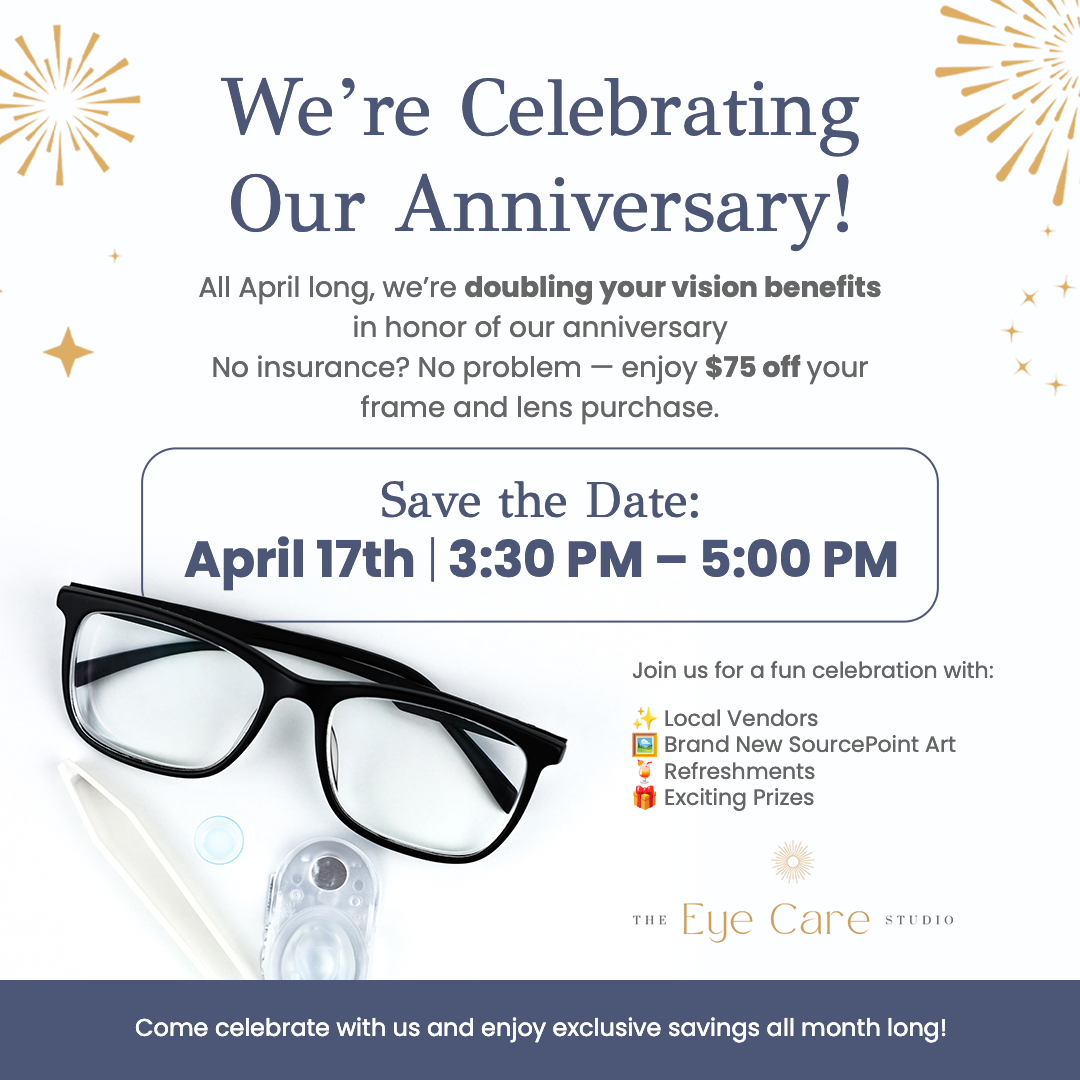
There are a few special reasons why The Eye Care Studio exists today- one of the most important is to provide patients with the highest standard of care in a personable and compassionate environment. Dr. Ame Cline has been serving patients for over 15 years in many different settings. Over that time, she never found the right combination of services, technology, and customer service that she believes patients deserve. So, she decided to create it herself!
We believe patients deserve time with their doctor to fully discuss their symptoms, concerns, and questions. Too often, patients are rushed through their appointments and leave feeling unfulfilled by their experience. We schedule one hour for every adult comprehensive exam so we have the time to fully evaluate your eye health, and your systemic health as it applies to your ocular system and address any concerns you may have. Every patient may not need the entire hour but we have it reserved just in case. In addition to the basic prescription check and health screening you will find at other offices, we perform a dry eye screening, retinal photography, and digital peripheral vision testing on every patient. We have made these part of our standard of care because we believe everyone deserves them and shouldn't have to pay extra charges when these provide such valuable information for the patient and the doctor.
Common Cataract Symptoms:
Blurry Vision
Discolored Vision
Double Vision (often glare or shadowing around edges)
Light Sensitivity
Trouble driving at night or watching TV in the dark
Age is the most common cause of a cataract. Normal changes in the eye after the age of 50 cause clouding of the crystalline lens. Other causes include genetics, certain medical conditions (diabetes, auto-immune conditions, and more), smoking, UV exposure, previous ocular surgeries, and long-term use of certain medications (oral steroids especially).
Prevention is key. You can minimize your risk of cataract development and help slow the progression of cataracts by wearing sunglasses with 100% UVA & UVB protection. If you smoke, talk to your doctor for advice on how to reduce your dependency on tobacco products. If you notice any symptoms of cataracts, schedule an eye exam to discuss these changes with your optometrist.
Cataracts are a normal development and if we live long enough we will all develop cataracts to a certain extent. Oftentimes, cataracts develop slowly and do not get in the way of our normal day-to-day activities. Surgery is not recommended until symptoms affect your quality of life. Luckily we have a lot of very talented and specialized cataract surgeons who make the procedure as quick and easy as possible. Cataract surgery is so common, it is actually one of the top surgeries Medicare covers each year because so many people need it.
If you are unsure if you have cataracts or would like more information about them, schedule your eye exam today. Your optometrist can let you know what may be causing your symptoms and the best treatment options for you.











